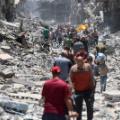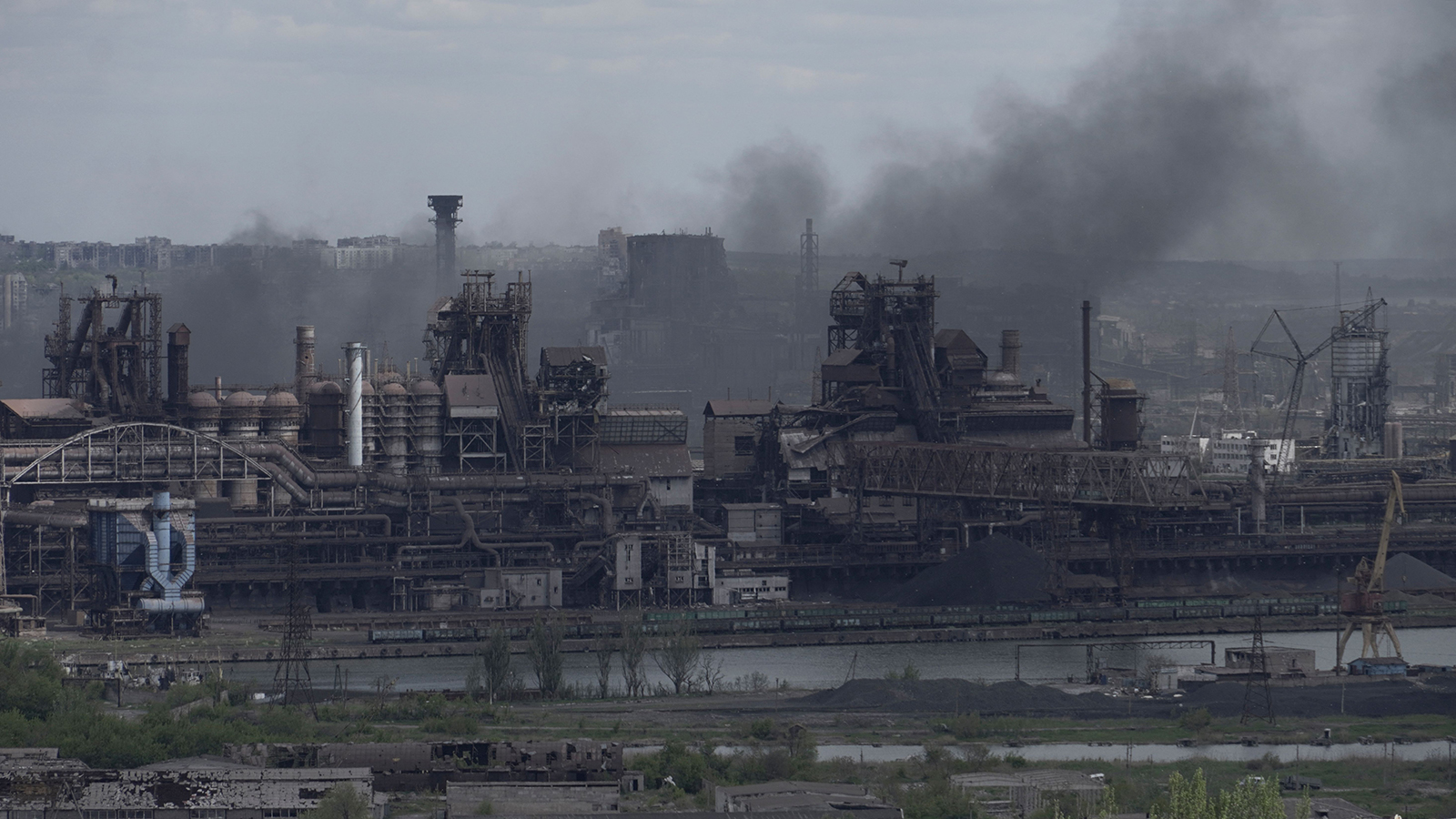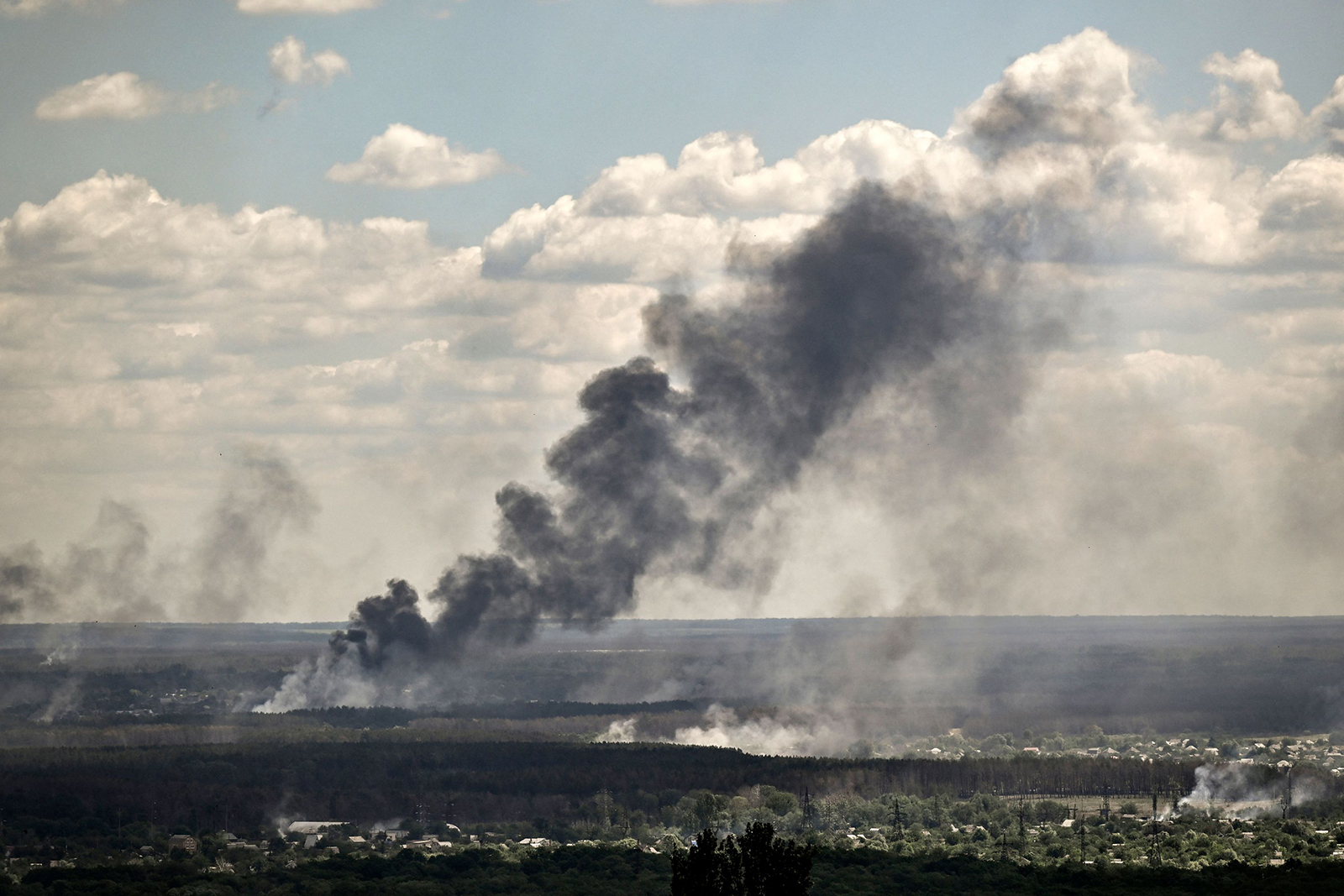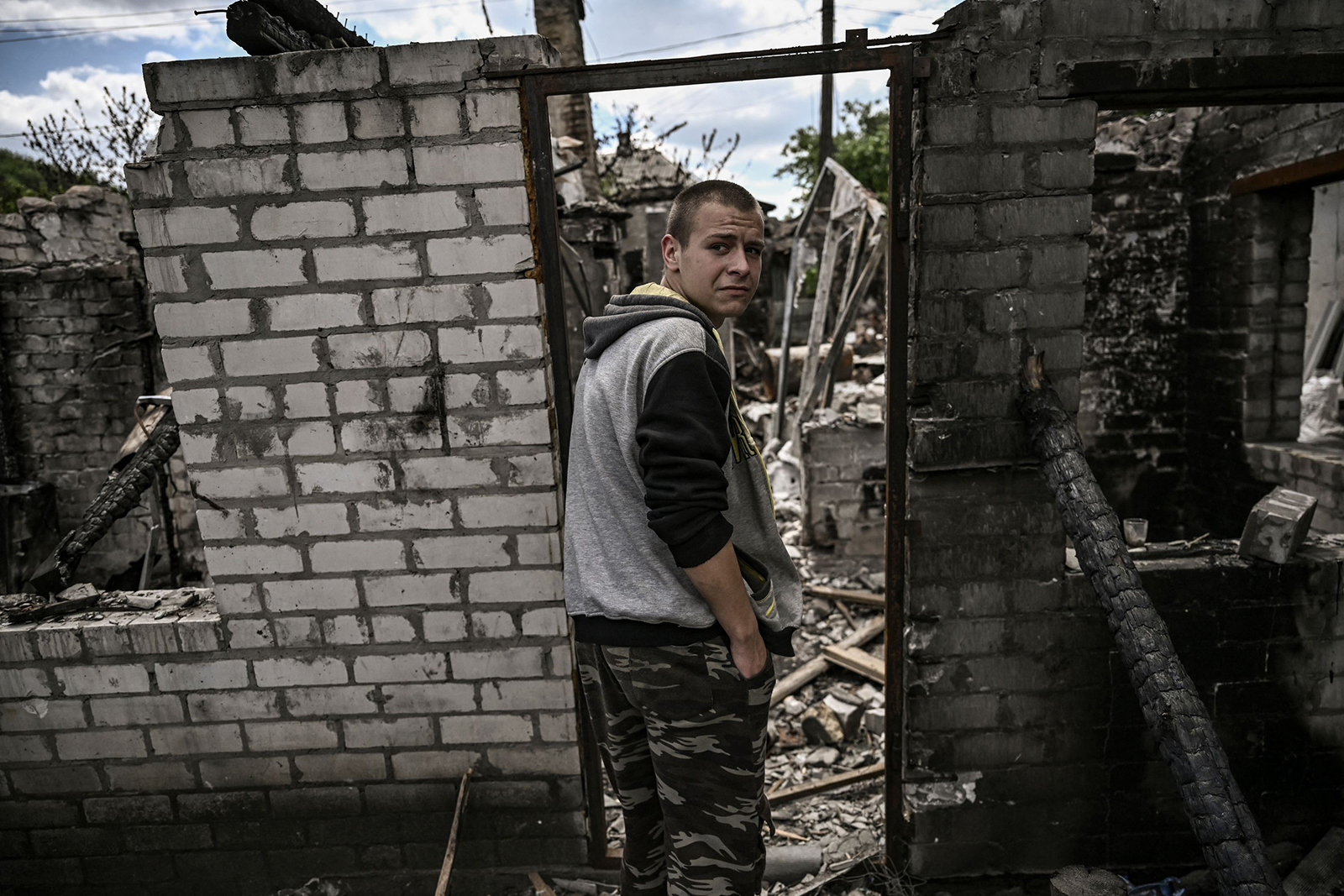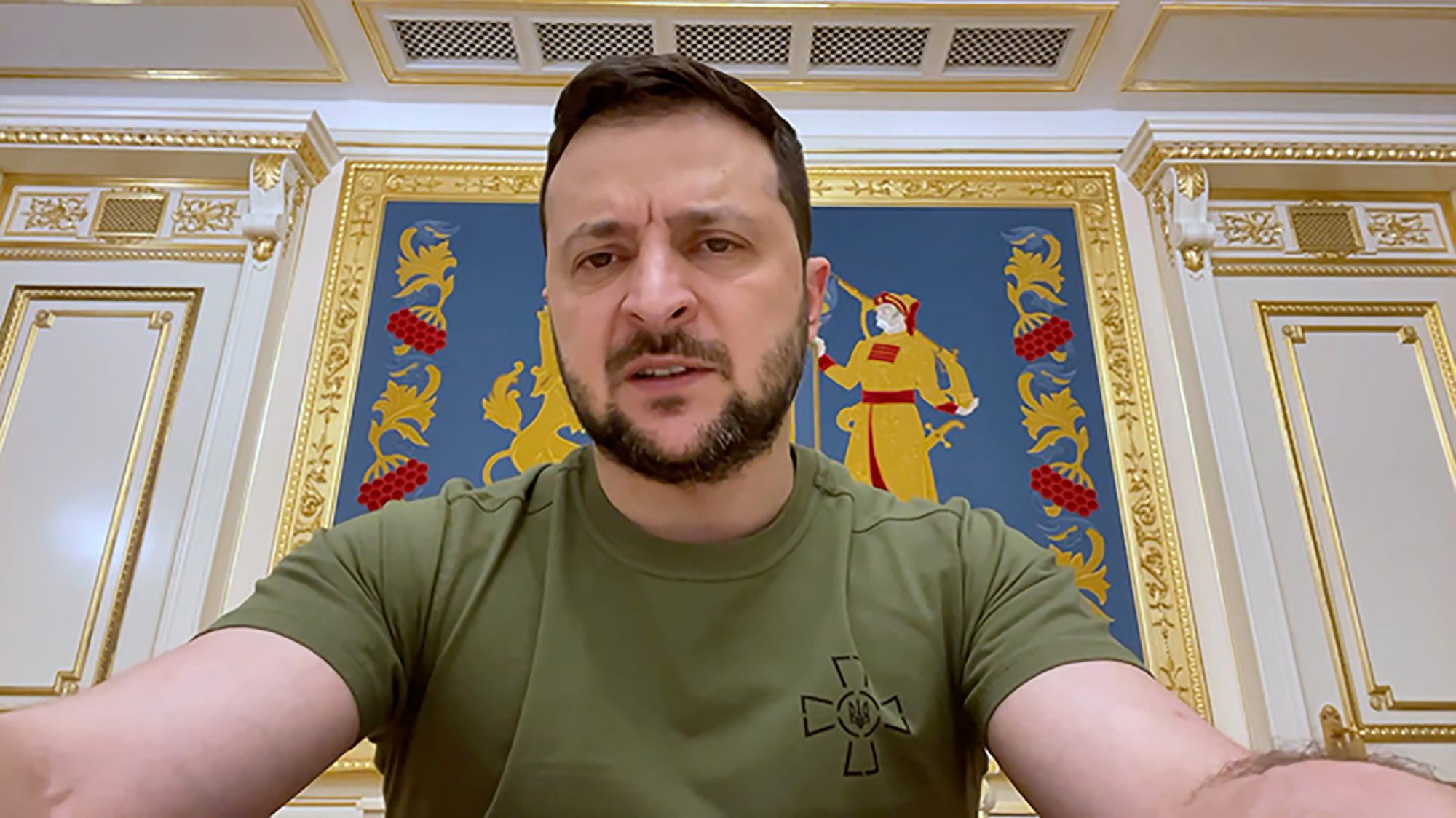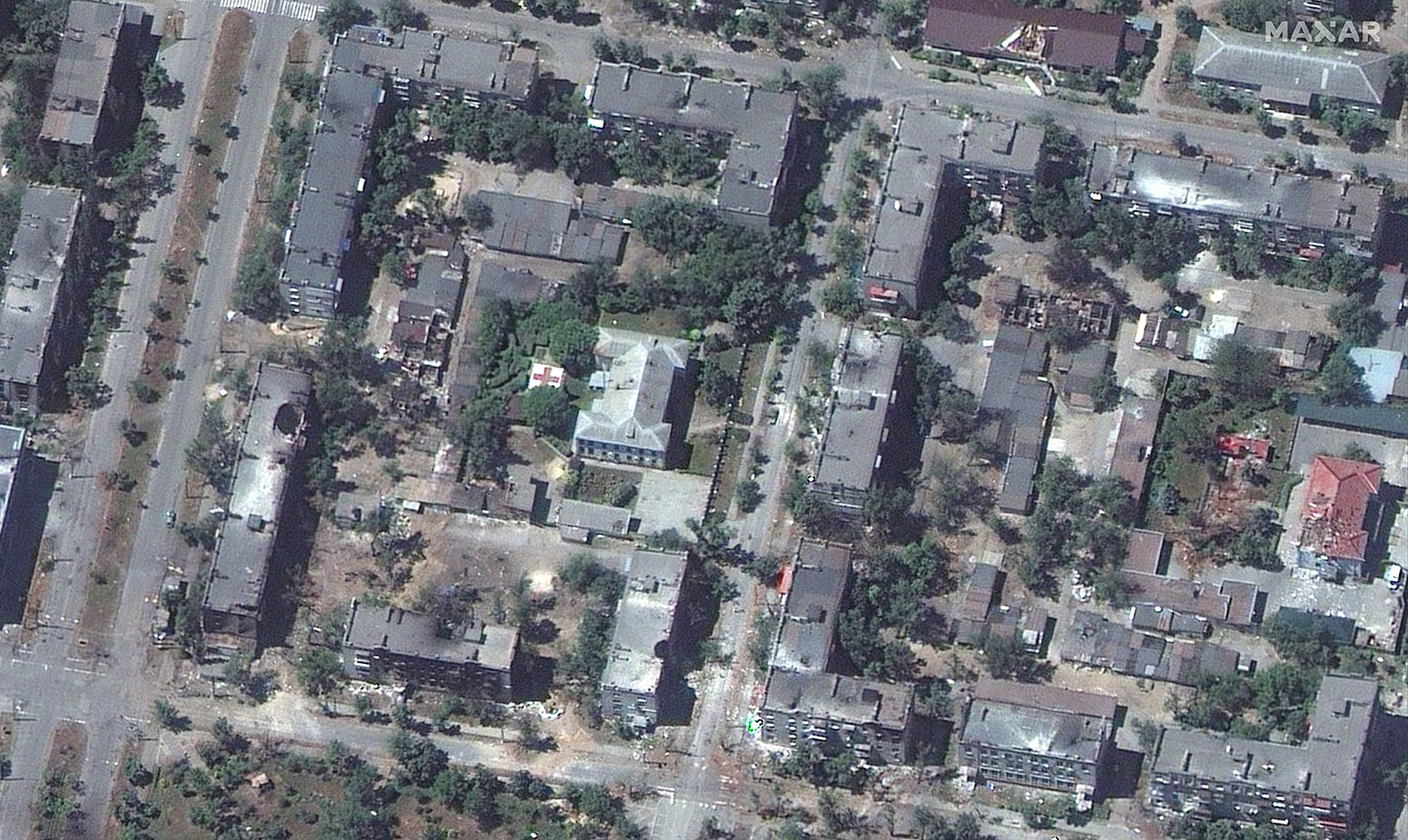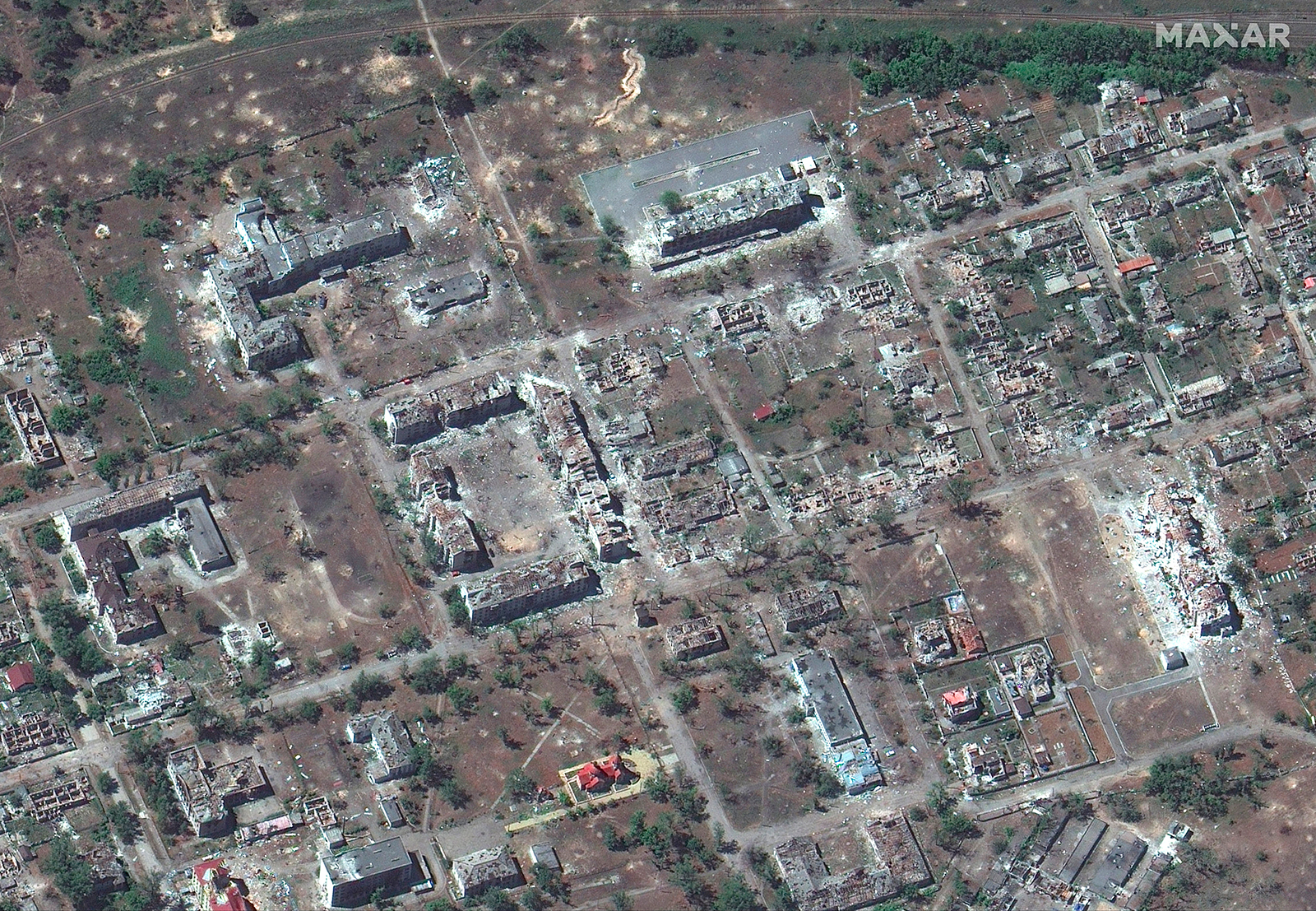
Ukraine could pull back its military “to more fortified positions” in Severodonetsk, a regional leader suggested on Wednesday, while insisting that Ukraine would not “give up” the key city.
“Fierce battles are taking place in Severodonetsk,” Serhiy Hayday, head of the Luhansk Regional Military Administration, said on national television Wednesday morning. “Our defenders are fighting for every inch of the city.”
“Nobody is going to give up the city, even if our military will have to pull back to more fortified positions, as the city is constantly being shelled. Still, it wouldn't mean the city is given up," he added.
A leader in the Russian-allied so-called Luhansk People’s Republic, Rodion Miroshnik, said Wednesday that Ukraine has control “over only a small part” over the Azot chemical factory in Severodonetsk. Hayday said last week that around 800 civilians are sheltering under that facility.
“Ukrainian militants are firing indiscriminately at the quarters near the enterprise,” Miroshnik said on Telegram. “Snipers are working. The circle of allied troops around the remaining group narrows.”
Miroshnik also claimed that Severodonetsk airport had “already been cleared of Ukrainian formations.”
“The shelling that was carried out from there has stopped. The remaining militants [referring to Ukrainian forces] are hiding in forest plantations around the airport. Allied forces are searching for them and clearing," he added.
Hayday, the Ukrainian official, said that Russia has devoted huge resources to its attempt to cut the main road that links Severodonetsk and neighboring Lysychansk to Bakhmut, further west.
“The strategic goal of the Russian army is to control the Bakhmut-Lysychansk route,” he said. “And by controlling, I mean putting their check points there and hold it under their control. As of now they are shelling the route, but not controlling it.”
He said that Ukraine no longer uses that road, as anyone driving there has a “90% chance” of being shelled. “We have other routes to deliver humanitarian aid and evacuate people,” he said.
Ukraine is expecting Russia’s offensive on Lysychansk and Severodonetsk to “increase multiple times,” he said. “We are expecting fierce battles.”
Nonetheless, the Armed Forces of Ukraine (AFU) said Wednesday morning that: “Our soldiers are successfully holding back the assault in the city of Severodonetsk, and hostilities continue.”
“Lysychansk is being shelled very hard,” Hayday said Tuesday evening. “They shoot purposefully at humanitarian headquarters, at schools [where people are sheltering]. Destroy the entire infrastructure completely.”
“Yes, it is very difficult to keep Severodonetsk,” he conceded. “Yes, they just destroy the city completely. But they do not control the city.”
He said that “fierce battles” also continue to rage in towns elsewhere in the Luhansk region, such as Zolote to the south.
“Settlements are shelled, simply completely erased from the face of the earth,” Hayday said. “But the enemy cannot pass them yet.”
